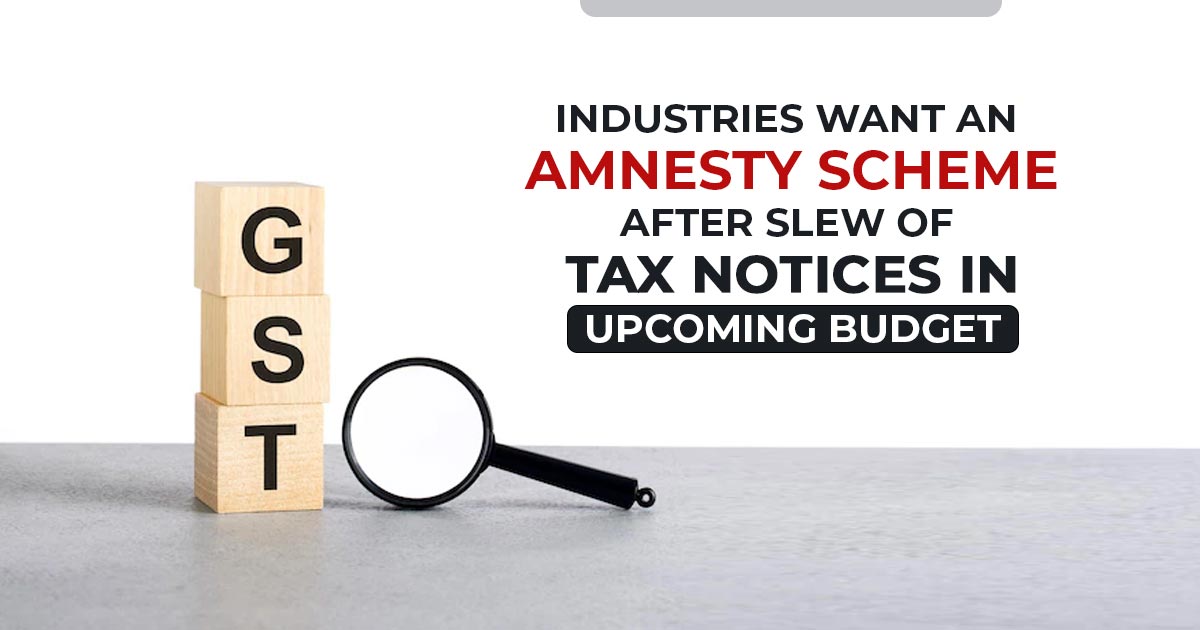
Following a series of GST demand notifications, the business sector is eager for the inclusion of an amnesty scheme in the upcoming interim budget. However, opinions among experts are divided on this matter.
In the previous year, reports indicated that authorities responsible for goods and services tax (GST) issued notices totalling around Rs 1.45 lakh crore to 1,500 businesses.
These notices alleged discrepancies in annual returns and input tax credits for the fiscal year 2017-18.
Experts anticipate that companies will likely contest these notices, leading to potential congestion within the legal system.
Important: A Wide Guide to GST Reconciliation with Most Useful Tips
The implementation of an amnesty scheme is seen as beneficial, as it could assist the government in generating revenue, save time spent on litigation, and convey a positive message to the industry.
Businesses have generally anticipated the introduction of amnesty schemes, particularly during the initial years of the tax implementation.
Given the recent upswing in legal disputes, a substantial portion of which is attributed to uncertainties during the initial years of GST, an amnesty scheme could play a crucial role in minimizing unnecessary litigation and promoting a business-friendly environment in India.
According to tax expert Bimal Jain, the government should consider providing amnesty in cases where tax demands arise due to clerical errors without any intention of tax evasion during the early stages of GST.
He suggests that the government should implement an amnesty scheme similar to the one used in the pre-GST era, involving a relaxation in GST tax liability without interest and penalties.
An amnesty scheme comes with inherent drawbacks. One concern is that these initiatives could establish a precedent, subtly influencing taxpayer expectations for future leniency and potentially influencing long-term compliance attitudes.
The current law lacks extensive jurisprudence, leading to numerous litigations revolving around interpretation issues.
The legitimacy of provisions is currently under scrutiny in notices or is awaiting resolution in courts, often involving substantial sums.
Should an amnesty scheme be introduced at this point, taxpayers would likely choose to resolve notices related to procedural matters.
The objective is to gain clarity on the interpretation of the law from courts/tribunals, a need that persists today, given that even the GST appellate tribunal is not operational yet.
Introducing a one-time settlement scheme might be somewhat premature, and it would be more fitting to announce such measures once there is a more established jurisprudence on various legal aspects.








